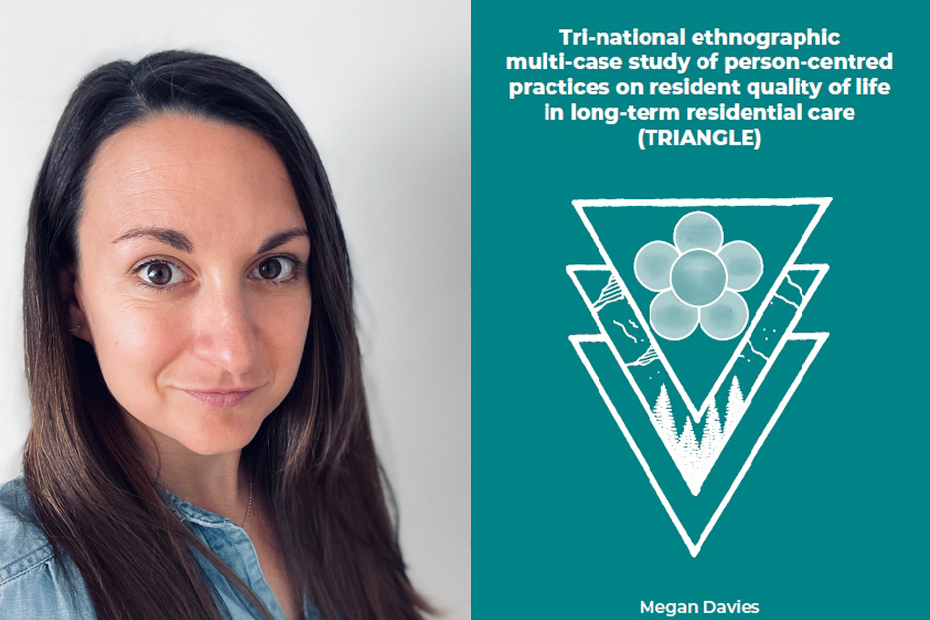/ People
Megan Davies successfully defended her thesis on 13 March 2023

Megan Davies' thesis is entitled "Tri-National Ethnographic Multi-Case Study of Person-Centred Practices on Resident Quality of Life in Long-Term Residential Care (TRANGLE)" . TRIANGLE is part of the TRANS-SENIOR project and has received funding from the European Union’s Horizon 2020 research and innovation programme under the Marie Skłodowska-Curie grant agreement No 812656.
In a steadily increasing global aging population, the number of older adults requiring care or support due to a decline in either physical or mental health is also rising. Necessary care and support can result from medical needs, a need for assistance with activities of daily living, such as washing and dressing, or social support and interaction. In 2020, it was reported that 25 million older adults in OECD countries were receiving care and support while living in long-term residential care, and giving the currently predicted demographics, it is not expected that this number will significantly reduce. Therefore, there has been an increased interest in long-term residential care research to improve daily care practices, which can impact resident quality of life following a move into long-term residential care. This move to improve long-term residential care services has seen a shift towards more holistic care models, which consider the whole person and focus on improving resident quality of life rather than prolonging life. A leading concept in social care models is person-centred care, which has been linked with improved resident quality of life. The COVID-19 pandemic highlighted pre-existing gaps in how person-centred care was conducted and in some cases caused long-term residential care practices to move back towards more medically focussed models of care.
While much research has been done to address the need and implementation of person-centred care practices in long-term residential care, there are still gaps in knowledge of how best to do this. This is due to differences in each long-term residential care home, for example in terms of physical or organisational structures as well as the different needs of residents living in each setting. An additional challenge has been understanding the true impact of person-centred care from resident perspectives, as extreme functional or cognitive decline, such as advanced dementia, has often led to resident voices being overlooked in research.
This dissertation presents a tri-national study, conducted in three long-term residential care homes in Switzerland, the UK and the Netherlands. The aim was not to make a direct comparison between the three long-term residential care homes, but to learn from the person-centred care practices used in each and take time to gain a full understanding of the local contexts, so that differences and similarities could be discussed within the research team. The research period included peak times of the COVID-19 pandemic, where in most cases research on-site was halted. Fortunately, permission was given to continue with this study in person in Switzerland throughout the pandemic, providing valuable insight into situations as they happened in real time.
